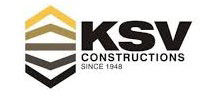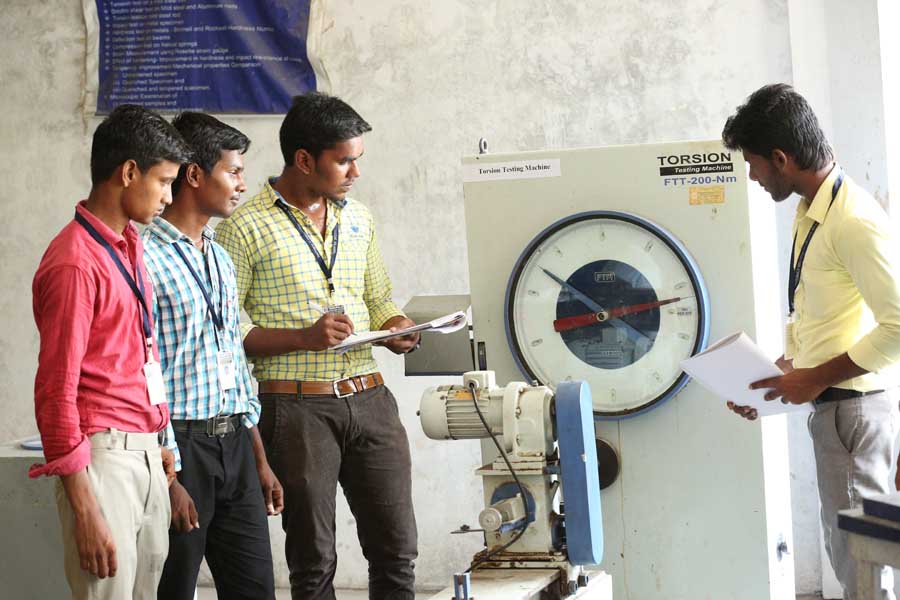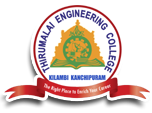Mechanical Engineering
Introduction
The TEC Mechanical Engineering department is a strong and growing component of the Thirumalai Engineering College, We offer a full and diverse Undergraduate Curriculum as per Anna University in both lecture and well-equipped laboratory courses, and are heavily committed to the total education, scholarship, and success of all of its students, and service to other constituents.
All class rooms are equipped with SMART BOARD, which provides highly interactive learning sessions. These classes promote frequent, direct interaction between professors and students, greatly enhancing the learning process. Laboratory courses in several mechanical engineering areas provide intensive experience in experiment/data Design, measurement and analysis. Students receive design experience through hands on experience in our CAD/CAM lab.
The opportunities for additional growth, development, and service are exciting. The entire college is committed to excellence in Engineering education, and the broader development and welfare of its students. We are confident that prospective students will be delighted with the student-focused environment and total educational experience that we offer, and welcome inquiries, visits, and comments. Please let us know if we can be of assistance with your educational goals, with your research or consultant needs, or in any other way.
Our Vision & Mission
Our Vision
Mechanical EngineeringOur Vision
The Mechanical Engineering Department strives to be recognized globally for outstanding education and research leading to well-qualified engineers, who are innovative, entrepreneurial and successful in advanced fields of engineering and research
Our Mission
Mechanical EngineeringOur Mission
Imparting quality education to the students and enhancing their skills to make them globally competitive Mechanical Engineers. Maintaining vital, state of the art research facilities to provide its students and faculty with opportunities to create, interpret, apply and disseminate knowledge. To develop linkages with world class research and development organizations and educational institutions in India and abroad for excellence in teaching, research and consultancy practices.
Department Activities
PROGRAMME EDUCATIONAL OBJECTIVES
-
Have a high level of technical competency combined with research and problem-solving skills to generate innovative solutions in mechanical engineering or related areas.
-
Be able to communicate effectively to various stakeholders and practice their profession with high regard to societal needs, diversity, constraints in the professional workplace, and ethical responsibilities.
-
Continuously updating themselves in areas and technologies that are relevant to their career, participate in personal development, and increasing their understanding of matters that are current and important to society in a national and international context.
-
Solve complex technical problems and /or design systems that are useful to society by applying the fundamental scientific principles that underpin the mechanical engineering profession.
-
Graduates are able to undertake lifelong learning and adapt to the changing environment.
PROGRAME OUTCOMES (POs)
- Engineering knowledge: Apply the knowledge of mathematics, science, engineering fundamentals, and an engineering specialization to the solution of complex engineering problems.
- Problem analysis: Identity, formulate, review research literature, and analyze complex engineering problems reaching substantiated conclusions using first principles of mathematics, natural sciences, and engineering sciences.
- Design/development of solutions: Design solutions for complex engineering problems and design system components or processes that meet the specified needs with appropriate consideration for public health and safety, and the cultural, societal, and environmental considerations.
- Conduct investigations of complex problems: Use research-based knowledge and research methods including design of experiments, analysis, and interpretation of data, and synthesis of the information to provide valid conclusions.
- Modern tool usage: Create, select, and apply appropriate techniques, resources, and modern engineering and IT tools including prediction and modeling to complex engineering activities with an understanding of the eliminations.
- The engineer and society: Apply to reason informed by the contextual knowledge to assess societal, health, safety, legal and cultural issues and the consequent responsibilities relevant to the professional engineering practice.
- Environment and sustainability: Understand the impact on the professional engineering solutions in societal and environmental contexts, and demonstrate the knowledge of, and need for sustainable development.
- Ethics: Apply ethical principles and commit to professional ethics and responsibilities and norms of the engineering practice.
- Individual and teamwork: Function effectively as an individual, and as a member or leader in diverse teams, and in multidisciplinary settings.
- Communication: Communicate effectively on complex engineering activities with the engineering community and with society at large, such as, being able to comprehend and write effective reports and design documentation, make effective presentations, and give and receive clear instructions.
- Project management and finance: Demonstrate knowledge and understanding of the engineering and management principles and apply for the set one‘s own work, as a member and leader in a team, to manage projects and in multidisciplinary environments.
- Life-long learning: Recognize the need for, and have the preparation and ability to engage in independent and life-long learning in the broadest context of technological change.
PROGRAM SPECIFIC OUTCOMES (PSOs)
Mechanical Engineering Program Leaners will be able to
- To develop product/process design for mechanical systems.
2. To evaluate the mass and energy flow in thermal systems
3. To select suitable manufacturing processes to meet industrial requirements.
Flexible choice based credit system
The learner can select the course he is interested to study during a semester. The course can be opted by the learner, with the prerequisite courses completed by the learner. For courses that do not have prerequisites, the learner can study the course in any semester, whenever it’s offered.
The learner should have earned the credits in each category namely HS, BS, ES, PC, PE, OE, MC to become eligible for the award of the degree.
Our Students Placed Companies
Department Activities
Department Events










